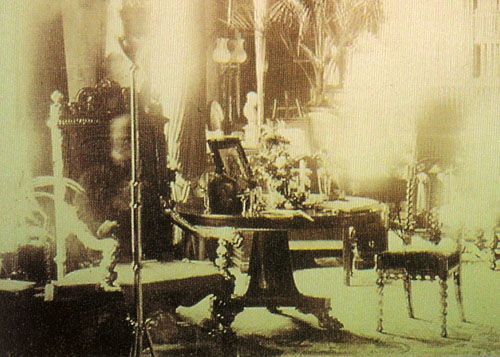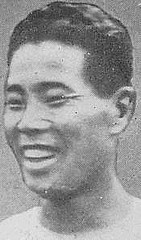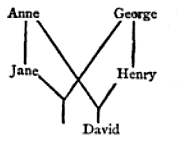
In 1891, Sybell Corbet took this photograph in the library of Combermere Abbey in Cheshire. The abbey’s owner, Lord Combermere, had just died after a London accident and was being buried that day in the family vault a few miles away.
Members of the family felt the figure in the chair was very like the dead man. But physicist William Barrett, noting that it was distinct only from the waist up, suggested that perhaps a manservant had sat down briefly during the 15 minutes that Corbet had left the shutter open.
Barrett had just published an article with these particulars in the Westminster Gazette when he received a letter from a Combermere relative. She shared his doubts, she said, but wanted to correct one error in the article. “You say he had not lost his legs,” she wrote, “but he died from an accident in which they were so much injured, he could never have used them again. He was run over by a wagon at Knightsbridge, crossing the street, and only lived a few weeks.”





